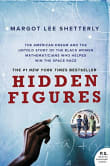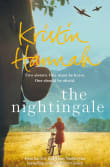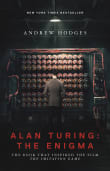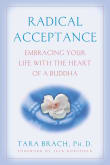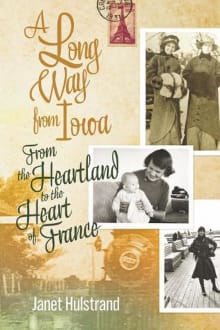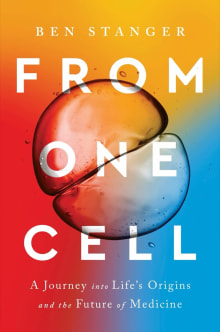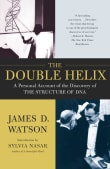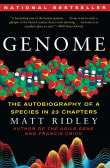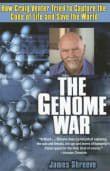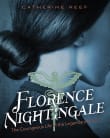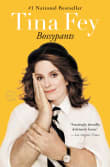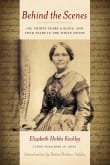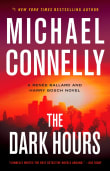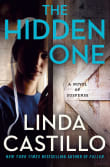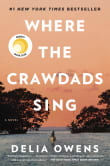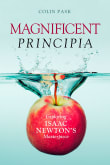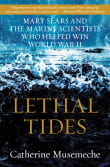The Code Breaker
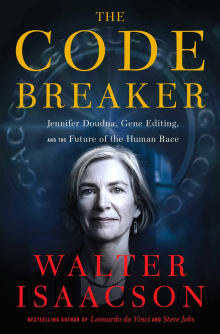
Book description
The best-selling author of Leonardo da Vinci and Steve Jobs returns.
In 2012, Nobel Prize winning scientist Jennifer Doudna hit upon an invention that will transform the future of the human race: an easy-to-use tool that can edit DNA.
Known as CRISPR, it opened a brave new world of medical…
Why read it?
11 authors picked The Code Breaker as one of their favorite books. Why do they recommend it?

I love this book because it turns the most impactful science discovery of the 21st century–CRISPR gene editing–into a page-turner. Isaacson combines a biography of Jennifer Doudna, who shared the 2020 Nobel Prize in Chemistry with Emmanuelle Charpentier, with lucid accounts of the science and sequence of research breakthroughs that underlie CRISPR editing, as well as the intrigues and jockeying among powerful scientists and personalities vying for prizes and patents on the technology.
I came through this book to appreciate the enormous potential of CRISPR gene editing for good (curing hereditary diseases) and not-so-good (designer babies or, in the words…
From Steve's list on science that should inform public policy.

I have seldom read a book with as much zeal as The Code Breaker, written by the famous biographer and historian, Walter Isaacson, whom I’d met on the CRISPR conference circuit.
Isaacson focuses on Doudna’s life and science, but also introduces the reader to a large cast of characters, including Doudna’s former colleague and fellow Nobelist, Emmanuelle Charpentier. He even has a crack at running a CRISPR experiment himself.
The success of this book has likely done more than anything to educate the public on the transformative promise of CRISPR.
From Kevin's list on CRISPR and genome editing.

The Code Breaker tells the amazing story of the development of the famous gene editing technology called CRISPR and the woman who co-created it.
I was drawn to Jennifer Doudna’s story because of her incredible journey of scientific discovery, but also because of her desire to grapple with the huge societal implications of her work. In engineering the genetic code, how do we impact humanity’s moral code?
Doudna’s story truly shows the need for scientists to consider the social impact of their work. She leads by example.
From Shohini's list on amazing women scientists who will inspire you.
If you love The Code Breaker...

As a longtime science and medical writer for The Boston Globe, I was in awe of Isaacson’s grasp of the complex science and the intricate people stories involved in the thrilling race to develop the gene editing technique, CRISPR. (My first novel was inspired in part by Isaacson’s brilliant book.)
Believe me, it takes an enormous amount of time, smarts, and dedication to probe, as a layperson, the most intricate secrets of science and to explain it all to non-scientists. Isaacson did this spectacularly well.
From Judy's list on readers drawn equally to history and psychology.

The history of medicine is a fluid, living discipline that is changing as rapidly as contemporary science.
In this century, the advent of CRISPR/Cas-9 gene editing, discovered by Jennifer Doudna and Emmanuelle Charpentier, is a game changer that has galvanized the field of gene therapy and is already producing cures that save lives today. Isaacson’s origin story of this thrilling discovery is as gripping as it is relevant to current medicine.
I particularly loved reading about Doudna’s upbringing in Hawaii as I have very fond memories of doing part of my medical training in Honolulu.
From Andrew's list on the history of medicine.

When is a thriller not fiction? When the gene-editing procedures of CRISPR are discoverers and shared with the world.
This biography of one of the discoveries of CRISPR is non-fiction but has the same page-turning, stay-up all-night focus of the best thriller out there. CRISPR babies—whose DNA is edited in vitro, the ethics of single-cell organism experiments to applications on eukaryotic cells. This biography has it all.
Released as the SARs-COv2 pandemic rages around the world, hints of how CRISPR can lend humanitarian aid. But what is the dark side of this simple, easily obtained, inexpensive methodology?
From C.A.'s list on geopolitical thrillers from today’s headlines.
If you love Walter Isaacson...

Few biographies represent subjects who are still alive. And most often the subject is the main character. However, in Code Breaker, the main character is not limited to Jennifer Doudna. The structural biologist from the University of California, Berkeley. It is also about a team of people all contributing to the discovery of CRISPR. Modern science takes a team and this is true here as well. Isaacson wrote this marvel during the COVID-19 pandemic, as the new science was used to battle this worldwide threat.
The book also highlights how science is built on a foundation of others’ discoveries,…
From C.A.'s list on mixing science, fiction, and adventure.

The Code Breaker is the latest masterwork by the master book builder, Walter Isaacson. Isaacson’s books are long and rich with detail, but every detail is fascinating and necessary for understanding the main characters: what they do, and why they do it. I’ve read Isaacson’s books on Albert Einstein and Steve Jobs. This book is about Jennifer Doudna (pronounced “Dowd-nuh”), a biotech scientist. In collaboration with a French scientist, Emmanuelle Charpentier, Doudna discovered a way (called “CRISPR”) to edit DNA, the so-called “code of life,” and they jointly won the Nobel Prize. If you are at all interested in science…
From Karl's list on keeping you riveted until the very end.

You may not know Jennifer Doudna’s name, but you’ve probably heard about her shared discovery, CRISPR. This gene-editing process won Doudna a Pulitzer Prize and is poised to help end a host of genetically-defined diseases. Doudna’s discovery wasn’t a solo act, but she pushed the door wide open for rapid-fire correction of many genetic conditions and for the creation of rapid Covid testing. As the parent of a child with a genetically-transferred disease, I count the moment I heard about CRISPR as one of those stand-still moments. CRISPR may or may not be able to change my child’s condition, but…
From Amy's list on biographies of bold women.
If you love The Code Breaker...

The most recent book on this list, Walter Isaacson’s biography of biochemist Jennifer Doudna hits the big issues animating discussions around genetics today: our emerging ability to edit the human genome, the hopeful yet frightening potential for gene therapy and human enhancement, and the implications of COVID-19 and future pandemics on humanity. Isaacson illuminates these social and scientific issues through the lens of Doudna’s life, which also highlights the (very unsatisfactory) way that science has dealt with gender. Isaacson describes the young Doudna’s enchantment with Watson’s The Double Helix, despite its overt sexism, and how it inspired her to…
From Jorge's list on genetics for the general reader.
Want books like The Code Breaker?
Our community of 12,000+ authors has personally recommended 67 books like The Code Breaker.




